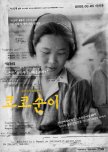What were Japanese "comfort girls"?
I had the privilege to see one of the first presentations of this KBS-documentary today. In the movie announcement it says:
Koko Sunji - our search to find the truth. Japanese "comfort girl" report no 49.
Subject: This documentary is concerned with the fate of twenty young Korean women who were discovered by the allies in 1944 in Myanmar (former Burma). As they were prisoners of war they were interrogated and there remained two interrogation reports about them, as well as a couple of photographs. The main purpose of the film was finding out who they were - based on these reports and pictures - what happened to them, and what was their role during the war years. Koko Sunji was one of them.
The film also sheds light on the people who wrote the reports, the conditions under which they were written and so on. In order to interpret the reliability of such a historical paper, all these details are important, that becomes evident. In the course of the documentary there are also a few Americans being included, who for different reasons got involved in the matter.
The story: The story concerns historical facts, not fiction, but if I have to rate the story, I`d say it is well narrated. You get to follow the path of the production team on their journey to shed light on that part of the war history. Step by step you follow their interviews, focussing always on the interviewed person. You see maps, buildings and sceneries of importance and in this way it stays interesting from beginning to end.
The film has a highly analytical approach to the matter, which helps not to get emotional.
Acting/cast: The people shown were authentic and always interesting, even though you might not like all of them - since there are conflicting opinions that get their screen time, too.
Music: I don`t actually remember any music. If there was music, it didn`t distract me from the film, and that is a good thing.
Rewatch value: I might rewatch it at a certain point. Some parts were actually artistic, in a subtle way, but I am mainly drawn to the analytical approach.
Facit: I recommend watching this movie if you want to be a little bit more informed about this part of the Korean/Japanese history. It is obviously not fluffy or feel-good stuff, but it is nothing that is difficult to watch or unbearable.
I don`t watch documentaries regularly. I give 9 points to this documentary because I think it deserves 9 points for keeping my interest wide awake until the end.
Koko Sunji - our search to find the truth. Japanese "comfort girl" report no 49.
Subject: This documentary is concerned with the fate of twenty young Korean women who were discovered by the allies in 1944 in Myanmar (former Burma). As they were prisoners of war they were interrogated and there remained two interrogation reports about them, as well as a couple of photographs. The main purpose of the film was finding out who they were - based on these reports and pictures - what happened to them, and what was their role during the war years. Koko Sunji was one of them.
The film also sheds light on the people who wrote the reports, the conditions under which they were written and so on. In order to interpret the reliability of such a historical paper, all these details are important, that becomes evident. In the course of the documentary there are also a few Americans being included, who for different reasons got involved in the matter.
The story: The story concerns historical facts, not fiction, but if I have to rate the story, I`d say it is well narrated. You get to follow the path of the production team on their journey to shed light on that part of the war history. Step by step you follow their interviews, focussing always on the interviewed person. You see maps, buildings and sceneries of importance and in this way it stays interesting from beginning to end.
The film has a highly analytical approach to the matter, which helps not to get emotional.
Acting/cast: The people shown were authentic and always interesting, even though you might not like all of them - since there are conflicting opinions that get their screen time, too.
Music: I don`t actually remember any music. If there was music, it didn`t distract me from the film, and that is a good thing.
Rewatch value: I might rewatch it at a certain point. Some parts were actually artistic, in a subtle way, but I am mainly drawn to the analytical approach.
Facit: I recommend watching this movie if you want to be a little bit more informed about this part of the Korean/Japanese history. It is obviously not fluffy or feel-good stuff, but it is nothing that is difficult to watch or unbearable.
I don`t watch documentaries regularly. I give 9 points to this documentary because I think it deserves 9 points for keeping my interest wide awake until the end.
Considerați utilă această recenzie?

 1
1





















